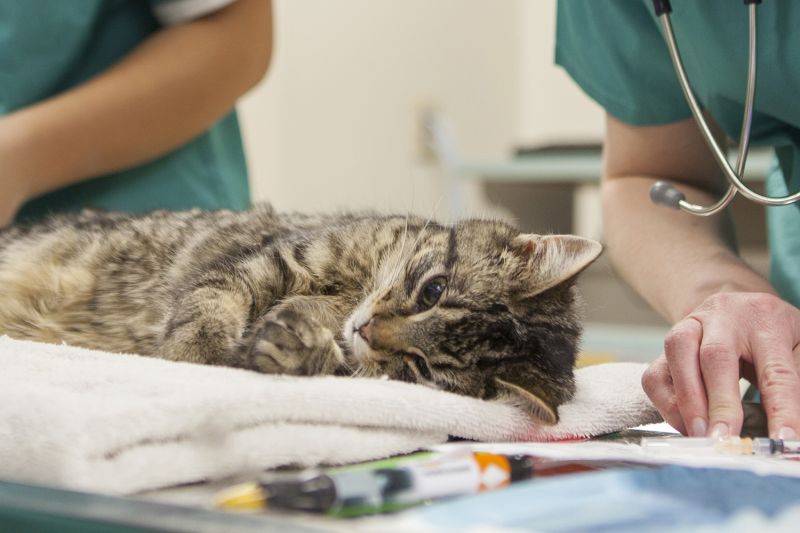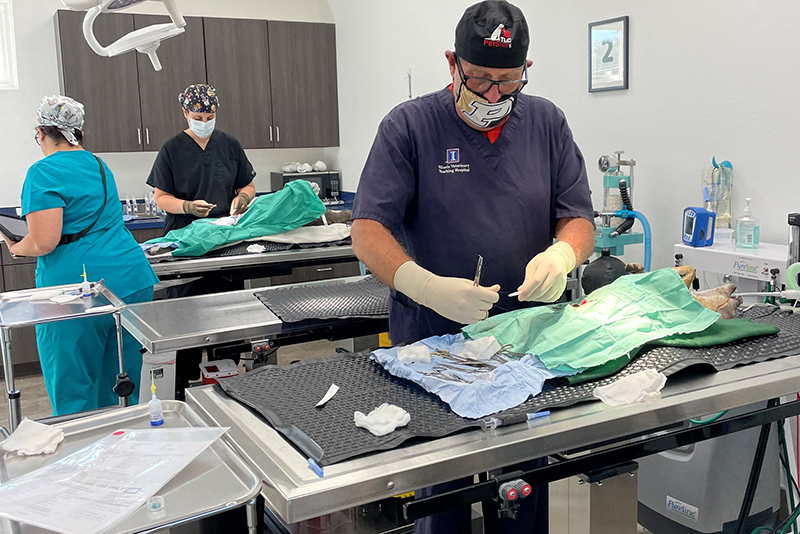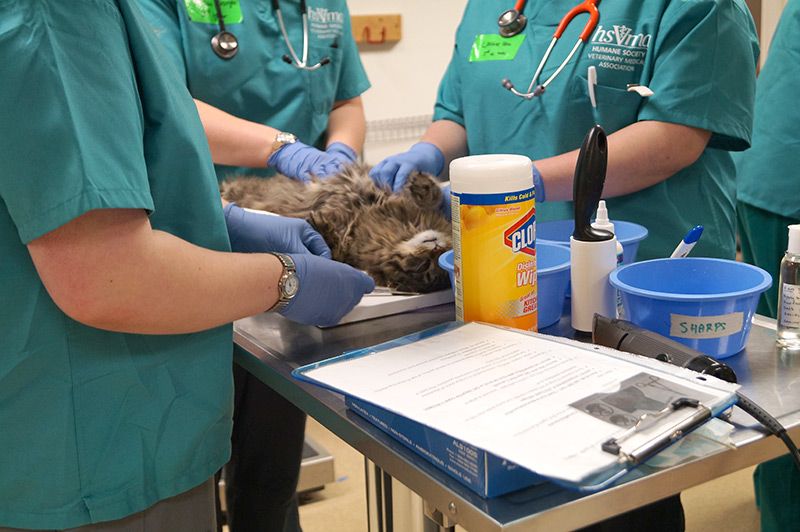Blog: Ease veterinary licensing laws for immediate impact
Overly burdensome state licensing laws deter veterinarians from volunteering and affect access to care
March 28, 2023

As I wrote in a previous blog, I was once a retired veterinarian who moved to Florida, intending to spend my free time on the golf course. Instead, I’ve spent the past three years spaying and neutering animals at TLC PetSnip, Inc., a nonprofit clinic in Lakeland, and have yet to play a round of golf.
How did my retirement plans end up taking a different turn? Well, like many recent retirees, I wasn’t as ready to live a life of leisure as I’d thought, and so I decided to volunteer. To do that, however, I first needed to acquire a Florida state veterinary license, even though I still had a valid Illinois veterinary license. At the time, I wasn’t sure how often I’d volunteer or whether it was worth the hassle and expense of getting a Florida license. Fortunately, I made the effort, and I now work several days a week as a high-quality, high-volume spay/neuter surgeon. But getting a second license wasn’t cheap or quick.
Now imagine all the veterinarians around the country in a similar situation. According to a 2020 study by the American Veterinary Medical Association, approximately 13% of U.S. companion animal veterinarians are over 65 years old and another 26% are between 56 and 65. Many of these veterinarians are likely retired, semi-retired or soon to be retired. They might spend part of the year in warmer climes (we call them “snowbirds” here in Florida), and while there they might be enticed to volunteer to spay and neuter local animals. And yet the current system of state-by-state licensing of veterinary professionals creates a significant barrier to them doing so.

When I’m not donning scrubs and using my scalpel, I’m working to change the broader system. I’m on a task force convened by the United Spay Alliance to look at ongoing challenges faced by the animal welfare and veterinary communities, particularly with regard to the veterinary workforce shortage and its impact on access to care and spay/neuter resources. Many potential solutions (increasing veterinary school class sizes, building new veterinary schools, adding a mid-level practitioner akin to a physician assistant in human medicine) will take years to make a difference. And we desperately need new options now.
The urgency was made clear in a recent study that examined the impact of the COVID-19 pandemic on spay/neuter services. The authors estimate that from January 2020 through December 2021, the pandemic resulted in a nationwide deficit of 2.7 million spay/neuter surgeries. Even today, pet owners in some communities continue to face massive delays in getting their animals sterilized.
One near-term solution that resonates with me and has the potential to make a difference sooner rather than later is license reciprocity or portability, which essentially means that one state will recognize the license of an individual from another state. From my own experience, I know the cost of obtaining and maintaining a license in another state can be a financial burden for retired vets. In Florida, in a process known as “licensure by endorsement,” I paid over $600 plus the cost of taking the state jurisprudence exam, and I had to produce veterinary school transcripts as well as evidence of licensure in good standing with every state I’d ever been licensed in (including those where my license was no longer active). In some states, the requirements are even more burdensome. This all adds up to a strong disincentive not only for retired vets who want to volunteer, but also for veterinarians who might on occasion be willing to help sterilize pets at MASH-style spay/neuter clinics or Spay Day events in a neighboring state.
License reciprocity or portability isn’t a simple issue, unfortunately. Each state regulates the practice of veterinary medicine by way of statute—their practice act. Getting states to ease their rules on license reciprocity or portability is a complex process, often requiring legislation.
But change is possible, and while a national vet licensure program may be a long way off, some states are making it easier for out-of-state veterinarians to do good work within their borders. Last year, Hawaii enacted a law that, among other things, allows the temporary permitting of out-of-state veterinarians. In Maryland, bills to allow veterinarians licensed in other states to provide spay/neuter and other routine medical care at animal shelters have been introduced in that state’s legislature. Here in Florida, the state House of Representatives recently passed a bill that would exempt veterinarians who are licensed and in good standing in another state from also needing a Florida veterinary license to volunteer as a spay/neuter surgeon here. The bill, which is now being considered by the Senate, would have the added benefit that veterinarians could come to Florida for HQHVSN training without having to first obtain a temporary state veterinary license.

I firmly believe that spay/neuter capacity is really an access-to-care issue. Changes to vet licensing laws won’t solve all our access-to-care challenges, but they’re a step in the right direction and have the potential to make a significant impact for animals and communities.
Consider, for example, TLC PetSnip, the low-cost clinic where I work, which currently has a three- to four-month backlog of surgical appointments. According to my colleague Lisa Gray, CVT, director of surgical operations, “If we had one or two more surgeons, even only part-time, that would allow us to sterilize several thousand more animals each year, which would be critical in terms of reducing unwanted litters of puppies and kittens.”
We as a field have done a great job of getting the “have your pets fixed” message out there. The problem is now that the owners are motivated to get their pets sterilized, they lack the access to care because of a shortage of spay/neuter surgeons. This has the unintended consequence of leading to unplanned litters (and the pressure they put on local animal shelters and rescues).
Many animals that we sterilize at TLC PetSnip have never before been to a veterinarian. We have the opportunity to get these pets started on a lifetime of wellness and prevention services, and to prevent unplanned litters. But we need enough veterinarians, including the snowbirds who, like me, would rather spay animals than play golf. We just need to make it easier for them to be part of the solution.

